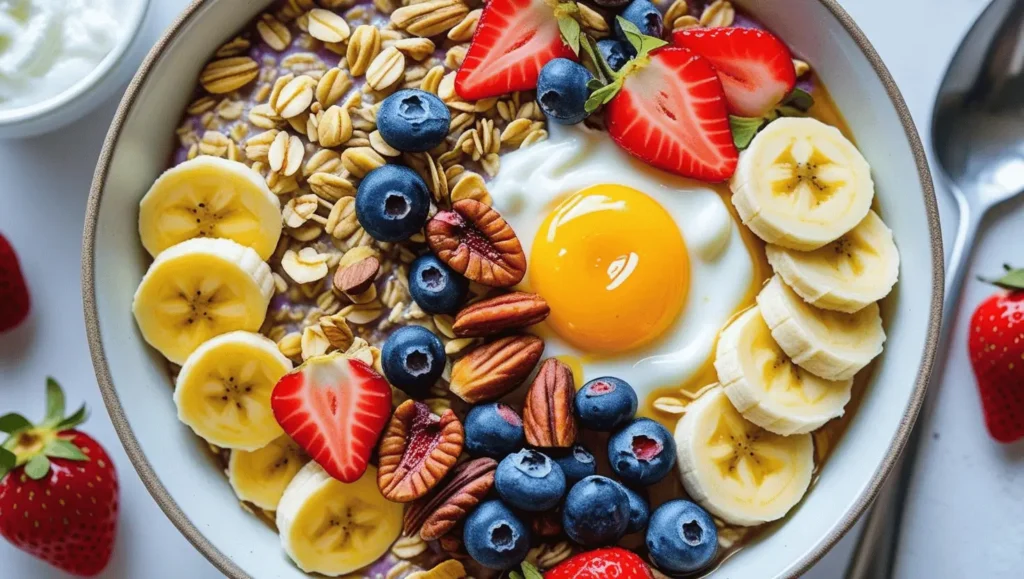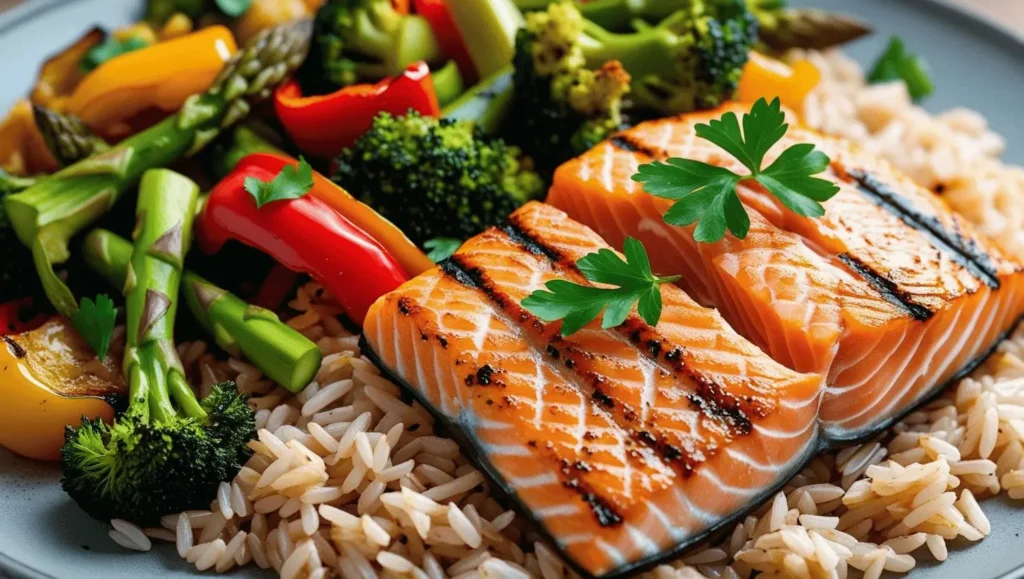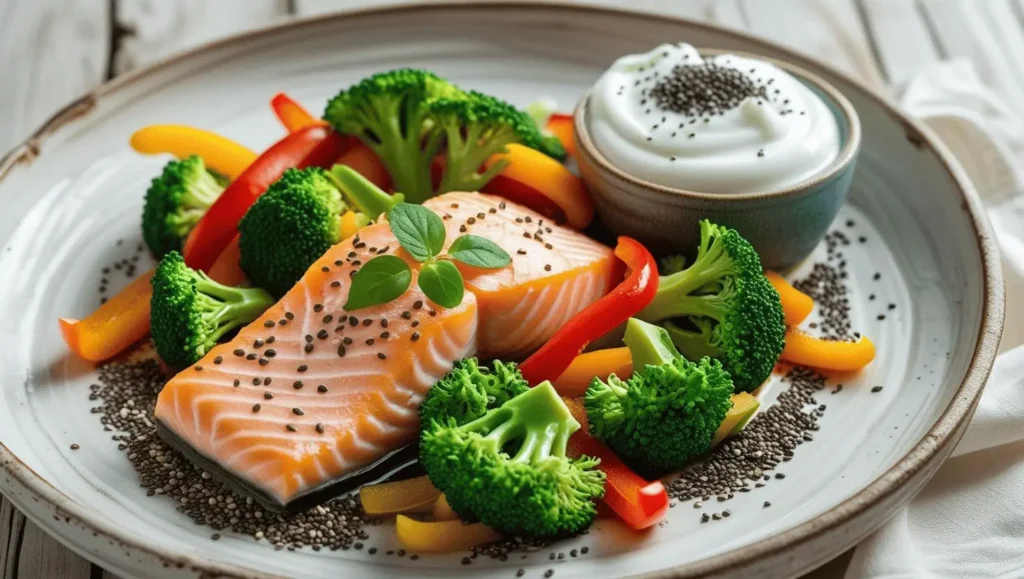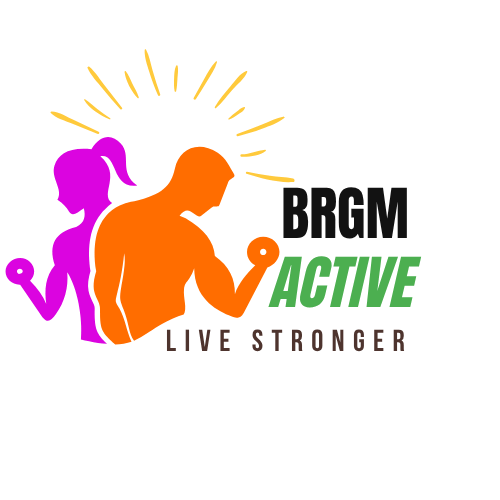3 Essential Nutrition Strategies for Youth, Adults & Seniors | Complete Guide
Proper nutrition isn’t one-size-fits-all. Your body’s nutritional needs evolve dramatically throughout your lifetime, from the rapid growth phases of youth to the muscle preservation needs of seniors. Understanding these changing requirements is crucial for maintaining optimal health, energy, and longevity at every life stage.
This comprehensive guide explores evidence-based nutritional strategies tailored to three distinct life phases: youth and adolescents (up to 25 years), adults (26-55 years), and seniors (56+ years). Whether you’re a parent planning meals for growing teenagers, an adult juggling work and family responsibilities, or a senior focused on healthy aging, this article provides practical, actionable nutrition advice backed by current research.

Table of Contents
- Healthy Nutrition for Youth & Adolescents
- Healthy Nutrition for Adults
- Healthy Nutrition for Seniors
- Conclusion
- Frequently Asked Questions
Healthy Nutrition for Youth & Adolescents (Up to 25 Years)
The Foundation Years: Building Lifelong Health Habits
The period from childhood through the mid-twenties represents one of the most critical windows for nutritional intervention. During these formative years, proper nutrition supports rapid physical growth, cognitive development, and the establishment of eating patterns that can influence health outcomes for decades to come.
Healthy nutrition for youth extends far beyond simply avoiding junk food. It encompasses strategic meal planning that supports academic performance, athletic achievement, and the development of a positive relationship with food. Research from the American Academy of Pediatrics demonstrates that adolescents who maintain balanced diets show improved concentration, better mood regulation, and enhanced physical performance compared to their peers with poor nutritional habits.
Nutrition for Energy and Academic Performance
Fueling the Learning Brain
Foods that help concentration for studying play a pivotal role in academic success. The adolescent brain undergoes significant development, requiring specific nutrients to support cognitive function and memory formation. Omega-3 fatty acids, found abundantly in fatty fish like salmon and sardines, support brain development and have been linked to improved academic performance in multiple studies.
A healthy diet to increase energy for youth should emphasize complex carbohydrates, lean proteins, and healthy fats while minimizing processed foods and added sugars. Complex carbohydrates from whole grains, fruits, and vegetables provide sustained energy release, preventing the energy crashes associated with high-sugar snacks.
The Power of Morning Nutrition
A healthy and nutritious breakfast for students sets the tone for the entire day. Research published in the Journal of School Health shows that students who eat balanced breakfasts demonstrate better attention span, improved memory, and higher test scores. The ideal student breakfast combines protein (eggs, Greek yogurt, or nut butter), complex carbohydrates (oatmeal, whole grain toast), and healthy fats (avocado, nuts, or seeds).
Proper nutrition during exams becomes even more critical during high-stress periods. Antioxidant-rich foods like blueberries, dark chocolate, and green tea can help combat oxidative stress while supporting cognitive function. The amino acid tyrosine, found in almonds, avocados, and bananas, supports the production of neurotransmitters essential for focus and alertness.

Nutrition for Sports and Body Building
Building Muscle and Athletic Performance
For active youth, a muscle building diet for youth requires careful attention to protein intake and timing. Young athletes need approximately 1.2-1.6 grams of protein per kilogram of body weight daily, with this requirement increasing during periods of intense training. However, more isn’t always better – excessive protein intake can strain developing kidneys and may displace other essential nutrients.
Pre and post-workout nutrition for teens follows specific principles that maximize performance and recovery. Pre-workout meals should be consumed 2-3 hours before exercise and emphasize easily digestible carbohydrates with moderate protein. Post-workout nutrition is crucial for muscle repair and glycogen replenishment, with the ideal recovery window occurring within 30-60 minutes after exercise.
Natural Protein Sources for Young Athletes
Best natural protein sources for young athletes extend beyond traditional animal proteins. While lean meats, fish, eggs, and dairy products remain excellent options, plant-based proteins like quinoa, hemp seeds, and legumes provide additional benefits including fiber, antioxidants, and phytonutrients. A diverse protein intake ensures young athletes receive all essential amino acids while supporting overall health.
For youth struggling with being underweight, healthy weight gain for skinny youth requires a strategic approach that emphasizes nutrient-dense, calorie-rich foods. Nuts, nut butters, avocados, olive oil, and whole grains can help increase caloric intake while providing essential nutrients for growth and development.
Nutrition for Skin Health and Ideal Weight
The Diet-Skin Connection
The relationship between healthy eating and acne has gained significant scientific support in recent years. Research indicates that high-glycemic foods and dairy products may exacerbate acne in some individuals, while foods rich in antioxidants, omega-3 fatty acids, and zinc can support clear skin. The American Academy of Dermatology now acknowledges the role of diet in acne management, particularly for adolescents.
Beneficial foods for healthy and glowing skin include those rich in vitamin C (citrus fruits, berries, bell peppers), vitamin E (nuts, seeds, vegetable oils), and beta-carotene (sweet potatoes, carrots, leafy greens). These nutrients support collagen production, protect against oxidative damage, and promote healthy skin cell turnover.
Healthy Weight Management for Teens
A healthy weight loss diet for teenagers must prioritize nutrition over restriction. Extreme calorie restriction during adolescence can impair growth, bone development, and cognitive function. Instead, sustainable weight management focuses on increasing nutrient density while maintaining adequate caloric intake to support growth and development.
Nutrition to prevent obesity in adolescence emphasizes whole foods, regular meal timing, and mindful eating practices. The key is creating sustainable habits that can be maintained into adulthood while ensuring adequate nutrition for proper development.
Healthy Nutrition for Adults (26-55 Years)
Navigating the Prime Years: Balancing Health and Responsibilities
The adult years present unique nutritional challenges as individuals juggle career demands, family responsibilities, and the early signs of aging. Healthy nutrition for adults during this life stage focuses on disease prevention, weight management, and maintaining energy levels to support an active lifestyle.
Balanced diet principles become increasingly important as metabolism begins to slow and the risk of chronic diseases starts to increase. A comprehensive approach to adult nutrition considers not only macronutrient balance but also meal timing, portion control, and the integration of preventive nutrition strategies.
Healthy Nutrition for Women
Addressing Women’s Unique Nutritional Needs
Healthy nutrition for women over 30 must address the unique physiological changes that occur during this life stage. Hormonal fluctuations, pregnancy considerations, and increased risk of conditions like osteoporosis and iron deficiency anemia require targeted nutritional strategies.
A diet for hormonal balance in women emphasizes foods that support endocrine function and help regulate hormonal fluctuations. Cruciferous vegetables like broccoli and cauliflower contain compounds that support healthy estrogen metabolism, while healthy fats from sources like avocados and olive oil provide the building blocks for hormone production.
Essential Nutrients for Women’s Health
Iron and calcium-rich foods for women become particularly important during the reproductive years. Iron needs increase significantly during menstruation, with women requiring 18mg daily compared to 8mg for men. Excellent iron sources include lean red meat, dark leafy greens, legumes, and fortified cereals. Pairing iron-rich foods with vitamin C sources enhances absorption.
Calcium requirements remain high throughout adulthood, with women needing 1000mg daily (increasing to 1200mg after age 50). Dairy products, fortified plant milks, leafy greens, and canned fish with bones provide excellent calcium sources.
Healthy nutrition during pregnancy and breastfeeding requires additional considerations including increased folate, iron, and protein needs. Pregnant women need an additional 300-400 calories daily during the second and third trimesters, while breastfeeding mothers require an extra 500 calories daily.
Practical Solutions for Busy Women
A diet plan for working women must be both nutritious and practical. Meal preparation strategies, healthy snack options, and quick-cooking techniques become essential tools for maintaining good nutrition despite time constraints. The Academy of Nutrition and Dietetics provides evidence-based guidelines for meal planning that can be adapted to busy lifestyles.
Healthy Nutrition for Men
Men’s Nutritional Priorities After 30
Healthy nutrition for men over 30 focuses on preventing the chronic diseases that become more common with age, including heart disease, diabetes, and certain cancers. Men’s higher muscle mass and typically more active lifestyles require careful attention to protein intake and overall caloric needs.
A heart-healthy diet for men emphasizes foods that support cardiovascular health while managing risk factors like high blood pressure and elevated cholesterol. The Mediterranean diet pattern, rich in fruits, vegetables, whole grains, lean proteins, and healthy fats, has been extensively studied and shown to reduce cardiovascular disease risk by up to 30%.
Maintaining Muscle Mass and Performance
Foods to maintain muscle mass for men become increasingly important as muscle mass naturally declines by 3-8% per decade after age 30. Adequate protein intake (1.2-1.6g per kg body weight), resistance training, and strategic nutrient timing can help preserve muscle mass and strength.
Nutrition for increased physical and mental performance requires a holistic approach that considers both macronutrient balance and micronutrient adequacy. B-vitamins, found in whole grains, lean meats, and leafy greens, support energy metabolism and cognitive function. Magnesium, abundant in nuts, seeds, and dark chocolate, supports muscle function and stress management.
A diet plan for sedentary men must account for lower caloric needs while ensuring adequate nutrient intake. This population faces unique challenges including increased risk of weight gain, muscle loss, and metabolic dysfunction. Strategic meal timing and nutrient-dense food choices become particularly important.

Healthy Nutrition for Seniors (56+ Years)
Healthy Aging Through Optimal Nutrition
Healthy nutrition for seniors takes on new dimensions as the body’s needs change with age. The focus shifts from growth and performance to preservation – maintaining muscle mass, bone density, cognitive function, and immune health while managing chronic conditions that become more common with age.
Nutrition after 60 requires adaptations to account for decreased appetite, changes in taste and smell, medication interactions, and potential difficulties with food preparation or consumption. However, with proper planning and knowledge, seniors can maintain excellent nutritional status and enjoy improved quality of life.
Healthy food for the elderly emphasizes nutrient density, as caloric needs may decrease while nutrient requirements remain high or even increase. The concept of healthy aging through nutrition is supported by extensive research showing that proper nutrition can add years to life and life to years.
Nutrition for Preserving Strength and Muscle Mass
Combating Age-Related Muscle Loss
Best protein sources for seniors must be easily digestible and readily absorbed. As stomach acid production decreases with age, protein digestion can become less efficient. High-quality protein sources include eggs, fish, poultry, dairy products, and plant-based options like beans and quinoa.
Nutrition to prevent muscle loss (sarcopenia) requires both adequate protein intake and strategic timing. Research suggests that seniors need 1.2-1.5g of protein per kg of body weight daily, distributed evenly across meals to optimize muscle protein synthesis. The concept of “protein pulse feeding” – consuming larger amounts of protein at fewer meals – has shown promise in some studies.
Addressing Practical Eating Challenges
An easy to chew and swallow diet for seniors becomes necessary for those with dental issues or swallowing difficulties. Soft proteins like ground meat, fish, eggs, and dairy products can provide adequate nutrition while being easier to consume. Cooking methods like braising, steaming, and slow cooking can help tenderize foods naturally.
Essential dietary supplements after 50 may include vitamin B12 (due to decreased absorption), vitamin D (due to reduced skin synthesis and limited sun exposure), and calcium (to support bone health). However, supplements should complement, not replace, a balanced diet rich in whole foods.
Nutrition for Bone, Joint, and Memory Health
Supporting Skeletal Health
Foods to strengthen bones and joints for the elderly emphasize calcium, vitamin D, and other bone-supporting nutrients. Dairy products, fortified plant milks, leafy greens, and canned fish with soft bones provide excellent calcium sources. Vitamin D can be obtained through fatty fish, fortified foods, and sensible sun exposure.
Nutrition to prevent osteoporosis extends beyond calcium and vitamin D to include nutrients like vitamin K (found in leafy greens), magnesium (nuts, seeds, whole grains), and protein (which provides the matrix for bone formation). The National Osteoporosis Foundation provides comprehensive guidelines for bone-healthy nutrition.
Cognitive Health and Memory Support
Foods that boost memory and slow Alzheimer’s have gained significant research attention. The MIND diet (Mediterranean-DASH Intervention for Neurodegenerative Delay) combines elements of the Mediterranean and DASH diets and has been associated with slower cognitive decline. Key components include leafy greens, berries, nuts, olive oil, and fatty fish.
Vitamin D and calcium sources for seniors remain crucial for both bone health and potentially cognitive function. Emerging research suggests that vitamin D deficiency may be linked to increased risk of dementia and cognitive decline.

Nutrition for Managing Common Health Conditions
Diabetes Management Through Diet
A healthy diet for seniors with diabetes focuses on blood sugar management through strategic carbohydrate consumption, regular meal timing, and portion control. The plate method – filling half the plate with non-starchy vegetables, one quarter with lean protein, and one quarter with complex carbohydrates – provides a simple framework for meal planning.
Heart Health and Blood Pressure
Proper nutrition for high blood pressure patients emphasizes the DASH (Dietary Approaches to Stop Hypertension) diet pattern. This approach reduces sodium intake while increasing potassium, magnesium, and calcium through fruits, vegetables, whole grains, and low-fat dairy products. The American Heart Association provides detailed guidelines for heart-healthy eating patterns.
Immune System Support
Foods to boost immunity in seniors include those rich in vitamins C and E, zinc, and selenium. Citrus fruits, berries, nuts, seeds, and colorful vegetables provide these immune-supporting nutrients. Probiotic foods like yogurt and kefir may also support immune function through gut health.
Digestive Health
Nutrition to improve digestion and prevent constipation becomes increasingly important as digestive function may slow with age. Fiber-rich foods, adequate hydration, and probiotic foods can support healthy digestion. However, fiber intake should be increased gradually to prevent digestive discomfort.
Conclusion
Healthy nutrition across generations requires a nuanced understanding of how nutritional needs evolve throughout life. From the rapid growth and development of youth to the preservation and maintenance focus of senior years, each life stage presents unique opportunities and challenges for optimal nutrition.
The key to successful nutrition at any age lies in understanding these changing needs and adapting dietary patterns accordingly. For youth and adolescents, the focus remains on supporting growth, academic performance, and athletic achievement while establishing healthy eating habits that will serve them throughout life. Adults must balance disease prevention with the practical realities of busy lifestyles, while seniors need to emphasize preservation of function and management of age-related health conditions.
Regardless of age, certain principles remain constant: emphasizing whole, minimally processed foods; maintaining adequate hydration; eating regular, balanced meals; and adapting nutritional strategies to individual needs and circumstances. The investment in proper nutrition at every life stage pays dividends in improved health, energy, and quality of life.
As our understanding of nutrition science continues to evolve, staying informed about evidence-based recommendations while working with healthcare providers and registered dietitians can help ensure optimal nutritional status throughout the lifespan. Remember that nutrition is not just about preventing disease – it’s about optimizing health, energy, and vitality at every stage of life.
Frequently Asked Questions
| Question | Answer |
|---|---|
| What are the most important nutrients for teenage athletes? | Teenage athletes need adequate protein (1.2–1.6g per kg body weight), complex carbohydrates for energy, healthy fats for hormone production, and key micronutrients like iron, calcium, and B-vitamins. Hydration is also crucial for performance and recovery. |
| How can working adults maintain healthy eating habits with a busy schedule? | Meal preparation, healthy snack planning, and strategic grocery shopping are key. Focus on batch cooking proteins, pre-washing vegetables, and keeping healthy portable snacks available. Even 20–30 minutes of meal prep weekly can make a significant difference. |
| What supplements are most important for seniors? | Commonly recommended supplements include vitamin B12, vitamin D, and calcium. These should complement a balanced diet, not replace it. Always consult with healthcare providers before starting any supplement regimen. |
| How much protein do seniors need daily? | Seniors typically need 1.2–1.5g of protein per kg of body weight daily. This should be evenly distributed throughout the day to optimize muscle protein synthesis and prevent sarcopenia. |
| Can diet really help with acne in teenagers? | Yes. High-glycemic foods and dairy may worsen acne for some, while antioxidants, omega-3s, and zinc may improve skin health. |
| What’s the best way to prevent heart disease through diet? | The Mediterranean diet is highly recommended. It includes fruits, vegetables, whole grains, lean proteins (especially fish), healthy fats like olive oil, and minimal processed foods and added sugars. |
| How can seniors maintain their appetite and nutritional status? | Eat smaller, more frequent meals; enhance flavors with herbs/spices; eat socially when possible; stay physically active; and focus on nutrient-dense foods. |
| Are there specific foods that can help with studying and concentration? | Yes. Omega-3-rich foods (fatty fish, walnuts), antioxidants (berries, dark chocolate), and complex carbs (oatmeal, whole grains) support brain function. Hydration is also crucial. |
| How does nutrition change during pregnancy and breastfeeding? | Pregnant women need 300–400 extra calories in later trimesters, plus more folate, iron, and protein. Breastfeeding mothers need about 500 extra calories and continued attention to protein, calcium, and hydration. |
| What’s the most important nutritional advice for healthy aging? | Focus on nutrient-dense foods, maintain sufficient protein to preserve muscle mass, stay hydrated, include antioxidant-rich and anti-inflammatory foods, and work with healthcare providers for tailored guidance. |
Knowing your ideal body weight helps guide your health and fitness journey. Our Ideal Weight Calculator is based on medical research and BMI standards. It helps you understand your weight goals based on:
- Height
- Gender
- Age
- Body frame
